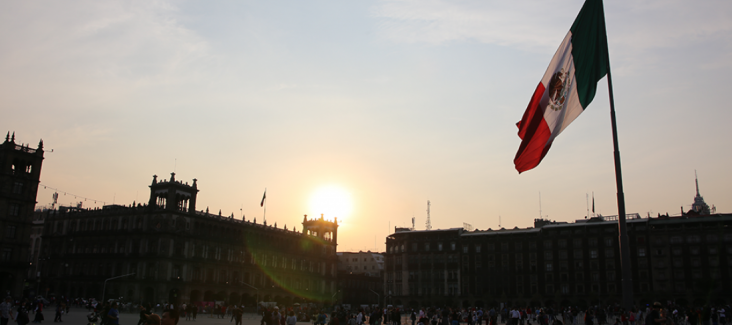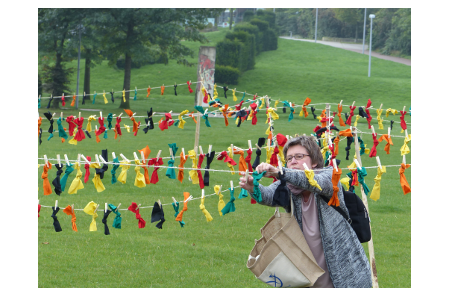It has been more than one month since the renowned Mexican plebiscite took place. From its announcement back in 2020, this democratic exercise aroused an array of diametrically opposed feelings and opinions not just within the Mexican society, but across the world. In a nutshell, President López Obrador wanted to ask the citizenry about the possibility of judging the ex-presidents Carlos Salinas (1988-1994), Ernesto Zedillo (1994 to 2000), Vicente Fox (2000 to 2006), Felipe Calderón (2006 to 2012) and his predecessor, Enrique Peña Nieto (2012 to 2018). In this fashion, Mexicans were called to cast their vote on the question: “Do you agree or not that the pertinent actions be carried out, in accordance with the constitutional and legal framework, to undertake a process of clarification of the political decisions made in the past years by the political actors, aimed at guaranteeing justice and the rights of potential victims?” Originally, the question was whether to prosecute the aforementioned politicians, but this was deemed unconstitutional by the National Supreme Court of Justice on grounds of interfering with due process and the presumption of innocence.” The result, thus, was this new ambiguous and fuzzy formulation.
In spite of the ostensibly noble intentions behind López Obrador’s plebiscite, the international community, scholars, and civil society have turned their gaze into this conjecture and have put into doubt the motivations and rationale that underpinned the consultation, inasmuch as it has been argued that this direct democracy tool was invoked with the sole intention of boosting the president’s popularity, rather than genuinely striving to tackle corruption. They also questioned whether it was appropriate to consult with citizens on a question that should be the reserve of the judicial system. For this reason, AMLO has been accused of opportunistically co-opting and instrumentalizing the Mexican democratic institutions. Simply put, López Obrador has been termed a populist.
Consequently, it is necessary to understand the results of the consultation with this context in mind and its potential effects in the long run. In order to outline some conclusions on this event, we have relied upon two experts on the topic to share their inputs with us: Carlos Gonzáles, researcher at the Ortega & Gasset Research Institute in Mexico; and Yanina Welp, researcher at the Albert Hirschman Centre on Democracy in Switzerland. In addition, official members of the Government’s party, Morena, were contacted, yet, unfortunately, they did not respond to our requests for comment.
The aftermath: understanding the results
Overall, the plebiscite had a low turnout. Of nearly 94 million Mexicans that were called to the ballot boxes - 40% of whom would be required to vote for a legally-binding referendum - just 6.6 million of them exerted their right to vote (or around 7% of the population). If these numbers are disentangled, we find out that of those who did vote, around 98% voted ‘’Yes’’, whilst almost 2% voted ‘’No’’, as indicated by the official records of the National Electoral Institute of Mexico (INE). So how should these numbers be interpreted?
Carlos Gonzáles asserts that the low participation rate is somehow normal and expected. "Usually, when this kind of participatory mechanisms are implemented, the turnout oscillates between 3% to 13% of the electorate roll, as we can see in Queretaro’s plebiscite (another public consultation promoted by AMLO recently in the city of Queretaro), being 7% the average participation rate", he stated. And adds: "Not to mention that when a process like this embodies a popular will, plebiscites can reach between 50 to 75% of participation."
Gonzáles highlights another point: ‘’More than 100.000 people voted against the plebiscite and no one is asking about it. I truly think this may be explained by three main factors: members from other parties that organised a boycott campaign, people that voted 'No' as a way to protest against the consultation itself, and people that were simply confused due to the ambiguity of the question. Unfortunately, reconstructing this data is not possible, but still should lead to a reflection’’.
In the same vein, Yanina Welp avers that "the plebiscite, which was supposed to mobilise people, had the opposite effect. First of all, the turnout quorum was not grounded in reality. But more than that, this referendum did not convene any demand from the citizens. López Obrador should have promoted a constitutional reform against corruption, rather than carrying out an unnecessary public consultation which, in the end, disenchants and pulls people apart from the democratic institutions due to its poor results."
Welp acknowledges that such public consultations typically mobilize less voters than presidential or parliamentary elections, but reminds us that the turnout rate depends on whether or not the issues reflect concern authentic democratic concerns. "The incentives for voting this time were few, therefore everything decanted into an erratic and abnormal plebiscite that made no sense," she concludes.
What are the takeaways and implications of the plebiscite?
For better or for worse, it is safe to say that AMLO’s plebiscite is a turning point for the use of direct democracy tools not just in Mexico, but throughout Latin America. For this reason, it is important to grasp what those potential consequences are, and how to prevent the executive branches and politicians from depriving people to put on the table just those topics that truly incarnate a general will, particularly in Latin America where this phenomenon is common and plebiscites tend to be highly politicised.
In this respect, Carlos Gonzáles is quite positive. Notwithstanding the results and the procedures implemented, which were detrimental to the spirit of democracy, Gonzáles says that not everything is bad and that one should celebrate with joy the fact that, at least, for the very first time a federal-level direct democracy mechanism was implemented in Mexico. This might open new doors. "It is the bright side of a misfortune," he declares.
On the other hand, Yanina Welp remains negative about the plebiscite. Welp explains that this democratic exercise does not generate any new or valuable outputs for the strengthening of direct democracy in the region. "The only effect of this plebiscite is deepening the bad image people have towards these mechanisms in an already politicised environment. In Uruguay, for example, presidents can not activate these consultations, and this is definitely the path to be followed. The idea of a plebiscite is to distribute power and to make it more accesible, not to keep empowering politicians," she states.
The arguments made by both Gonzáles and Welp depict an undeniable truth: this sort of top-down consultation shall at least mobilise concrete social demands for fruitful outcomes to arise, and for democracy to truly bloom. In this order of ideas, it is preferred that bottom-up initiatives and petitions are the ones placed in the agenda, as normally they are the result of a self-organised community’s deliberation process beyond the scope of any powers or interests. Citizens know the best what they need themselves, when they want it, and how should it be obtained. There is a still a long way to go, but for the moment, lessons need to be learned from this first-ever national plebiscite in Mexico.


